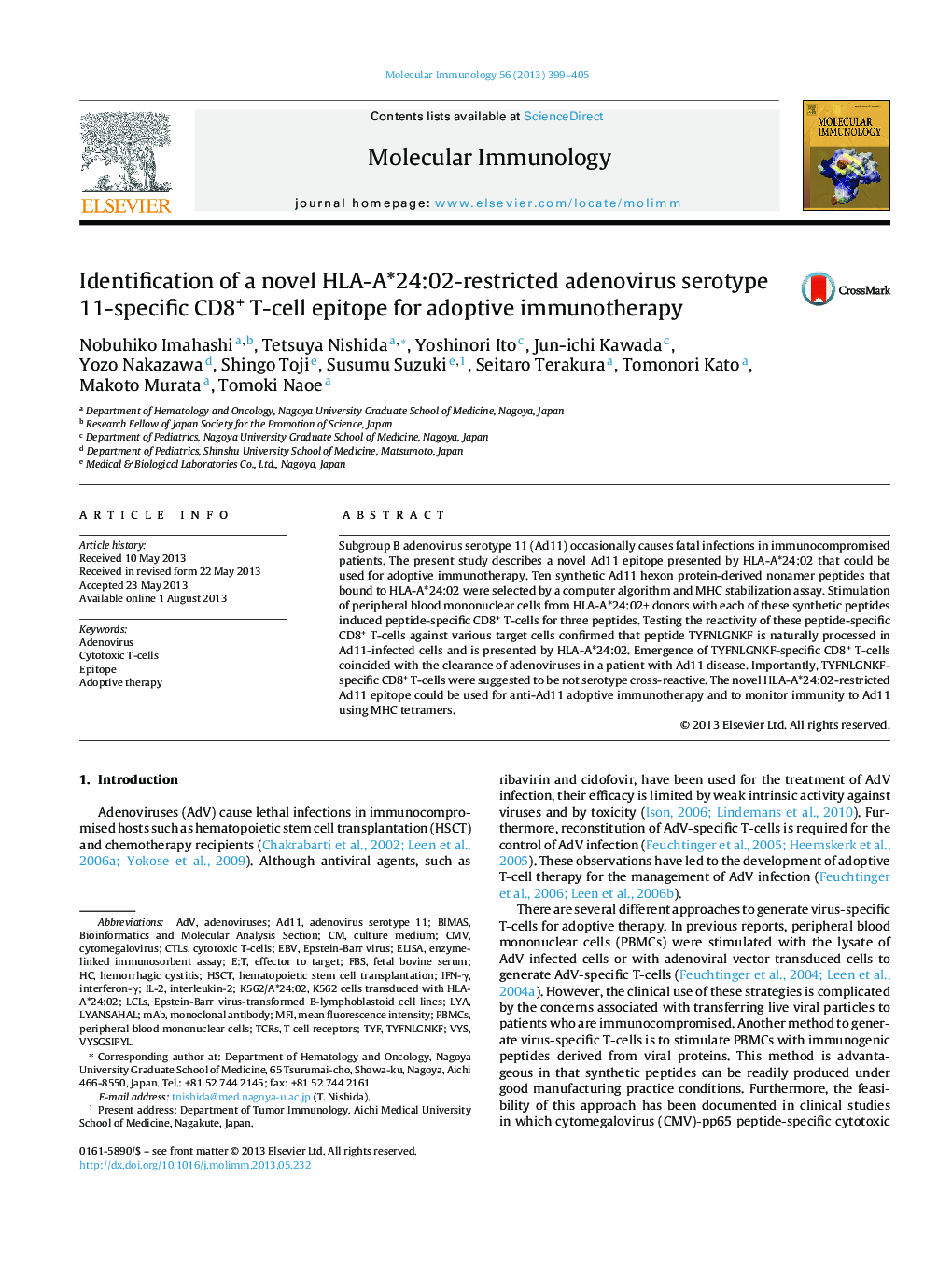| Article ID | Journal | Published Year | Pages | File Type |
|---|---|---|---|---|
| 5916932 | Molecular Immunology | 2013 | 7 Pages |
â¢We identified a new HLA-A*24:02-restricted T-cell epitope of adenovirus serotype 11.â¢The amino acid sequence of the newly identified epitope is TYFNLGNKF.â¢Emergence of the TYF-specific T-cells coincided with the clearance of adenovirus.â¢TYF-specific T-cells were suggested to be not serotype cross-reactive.â¢TYF epitope could be used for adoptive therapy and virus specific immune monitoring.
Subgroup B adenovirus serotype 11 (Ad11) occasionally causes fatal infections in immunocompromised patients. The present study describes a novel Ad11 epitope presented by HLA-A*24:02 that could be used for adoptive immunotherapy. Ten synthetic Ad11 hexon protein-derived nonamer peptides that bound to HLA-A*24:02 were selected by a computer algorithm and MHC stabilization assay. Stimulation of peripheral blood mononuclear cells from HLA-A*24:02+ donors with each of these synthetic peptides induced peptide-specific CD8+ T-cells for three peptides. Testing the reactivity of these peptide-specific CD8+ T-cells against various target cells confirmed that peptide TYFNLGNKF is naturally processed in Ad11-infected cells and is presented by HLA-A*24:02. Emergence of TYFNLGNKF-specific CD8+ T-cells coincided with the clearance of adenoviruses in a patient with Ad11 disease. Importantly, TYFNLGNKF-specific CD8+ T-cells were suggested to be not serotype cross-reactive. The novel HLA-A*24:02-restricted Ad11 epitope could be used for anti-Ad11 adoptive immunotherapy and to monitor immunity to Ad11 using MHC tetramers.
